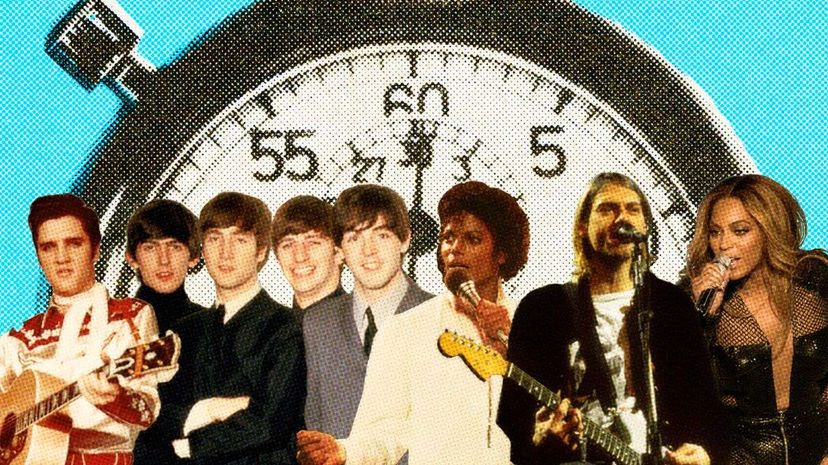
People say there's no such thing as too much of a good thing, but pop radio would beg to differ. The majority of radio-friendly pop songs clock in around three minutes, with some drawing nearer to the four-minute mark. So is this time-limit standard in place to assuage short attention spans of listeners?
“There may be a psychological basis, but I think it would be hard to prove,” says musician and cultural critic Mike Barthel via email interview. “The more immediate reason is that people prefer what is familiar, and pop songs have had essentially the same format for over 60 years.”
Advertisement
Barthel also notes that the longstanding structure of a pop song mathematically lends itself to a three-minute tune, depending on tempo (three 16-bar verses, three eight-bar choruses and an eight-bar bridge, all played at 120 beats per minute equals two minutes and 40 seconds). In addition, the preference for shorter songs falls squarely on the limitations of early technology, since the first records (78s) could only hold three to four minutes of music per side.

But what about now, when people can create songs of any length, thanks to digital technology? “I don't think that producers are necessarily telling artists to make punchy, short songs,” says Millie De Chirico, radio adviser at college station SCAD Atlanta radio. “If you listen to songs on the albums they tend to be way different than they are on the radio. It's just a radio technique to cut it.”
These leaner versions are usually achieved by trimming or removing extraneous instrumentals and vocals, which make more time for programming necessities like advertisements, news reports and DJ banter.
“The great advantage of shorter songs to DJs is that they give you greater flexibility when looking to fill a specific amount of time between commercial breaks,” Barthel explains. “You have to play a seven-minute song at the beginning of a block or not at all, but you can slot in a two-minute song basically wherever.”
As they are wont to do, rock and college radio rarely conform to this standard. Rock radio listeners tend to enjoy more instrumentals, and college stations are not bound by the constraints of advertising, making programming somewhat simpler and more accommodating to music. De Chirico's station plays longer tunes as warranted.
“If you're not advertising it's not an issue. You play music to play music,” she says. “I actually think that if listeners are into a song they want it to go on forever.”
Advertisement